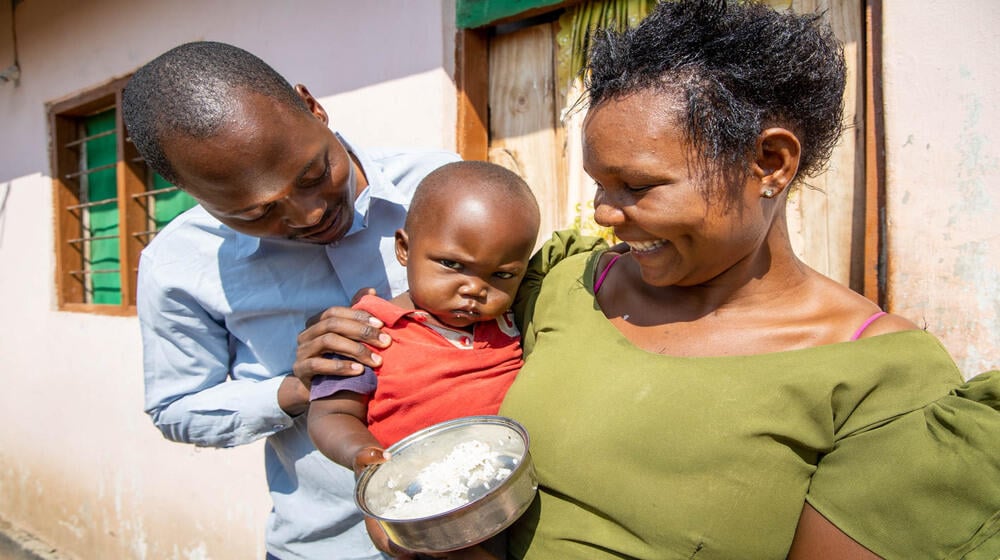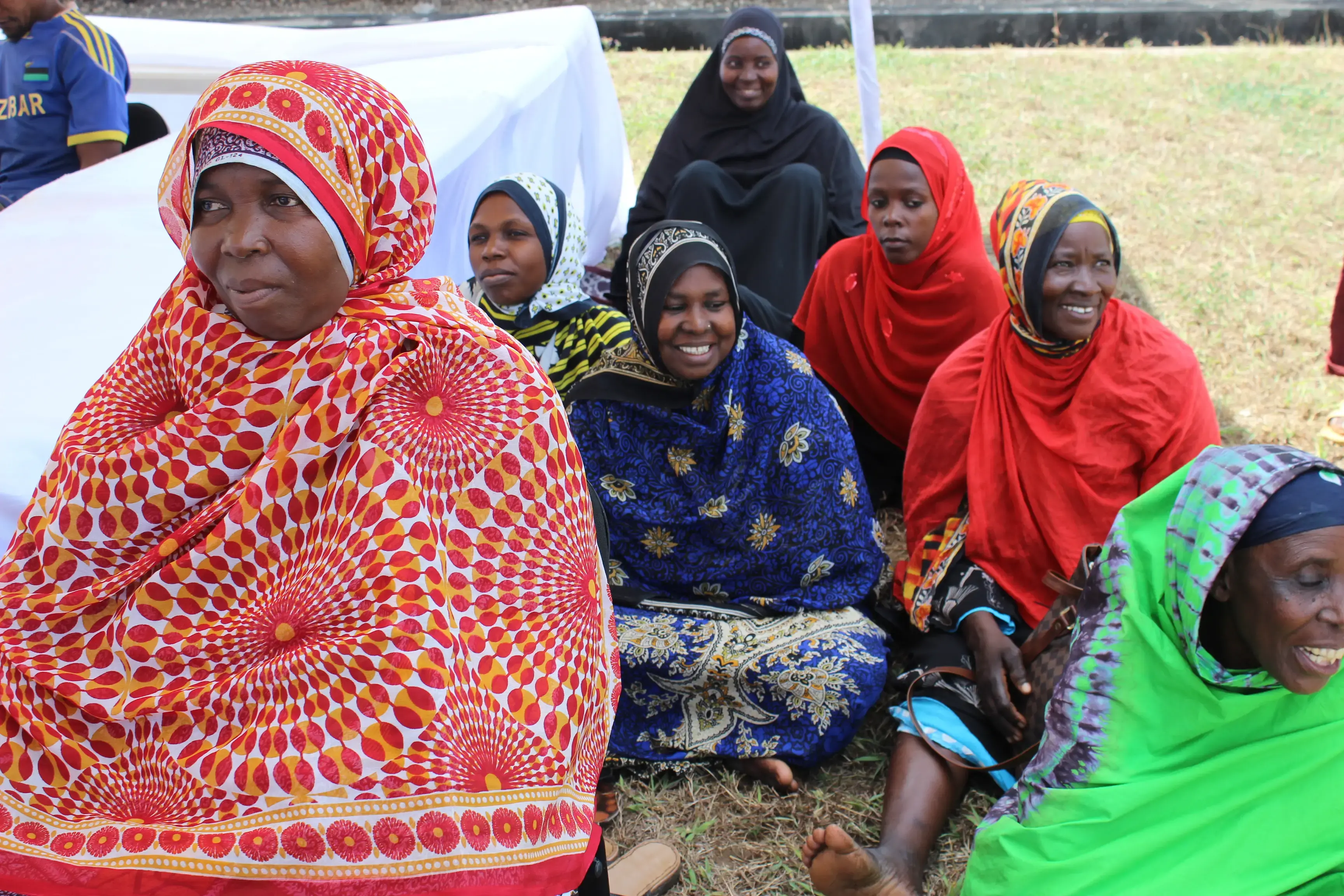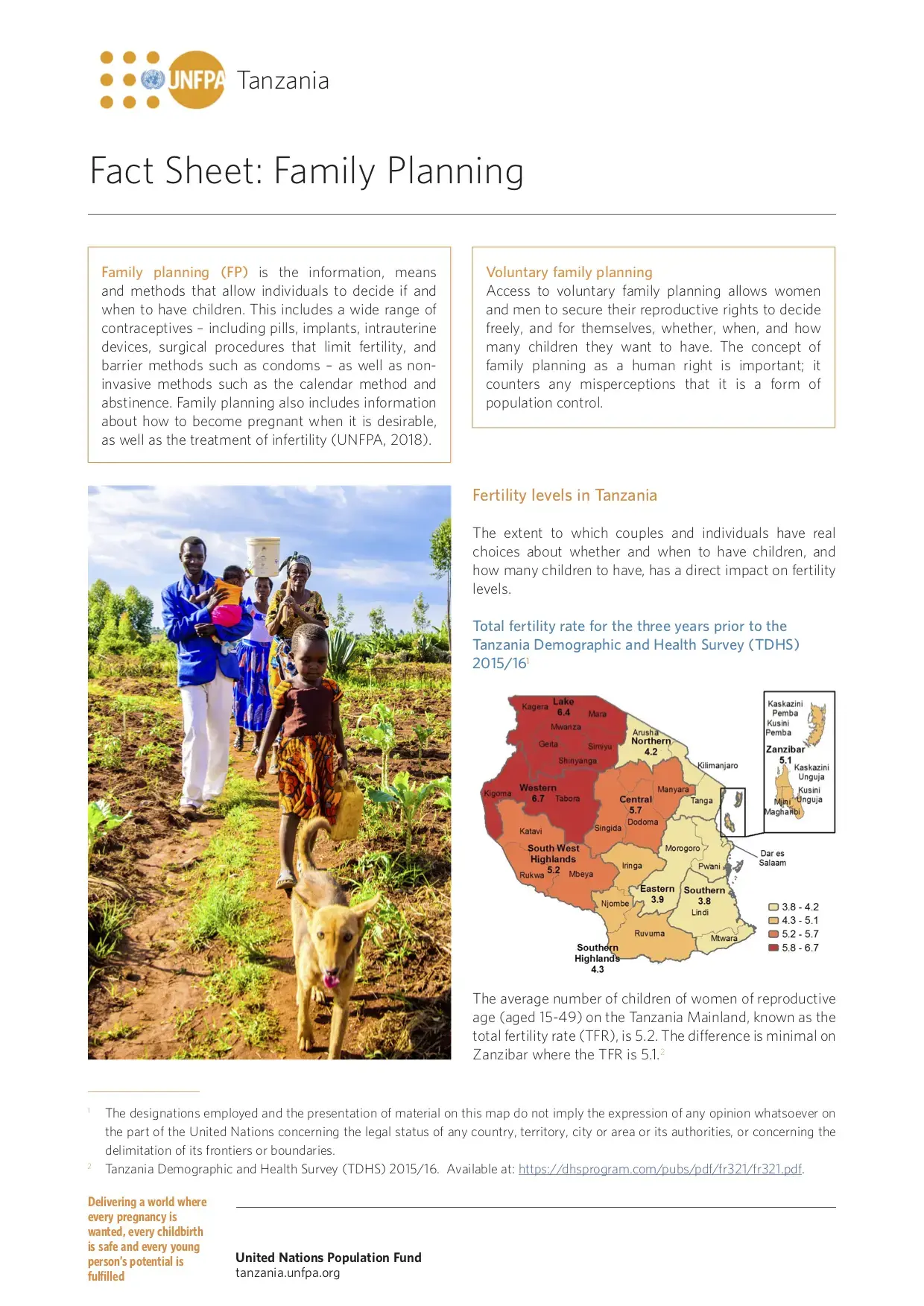UNFPA Tanzania’s Commitment to Family Planning and Child Spacing
“When I learned about family planning, I felt like I had control over my life. It’s not just about preventing pregnancy; it’s about planning a better future for my family.” Said Mwanaisha Rajabu, Fuoni Resident – Unguja, Zanzibar - Tanzania
Access to safe, voluntary family planning is a human right. Family planning is central to gender equality and women’s empowerment, and it is a key factor in reducing poverty. In Tanzania, the journey toward achieving universal access to family planning and child spacing is not just a health initiative—it’s a transformative movement that empowers individuals and communities.
With the support of the United Nations Population Fund (UNFPA), a dedicated effort is underway to address the unmet need for family planning, ensuring that every individual can make informed choices about their reproductive health.
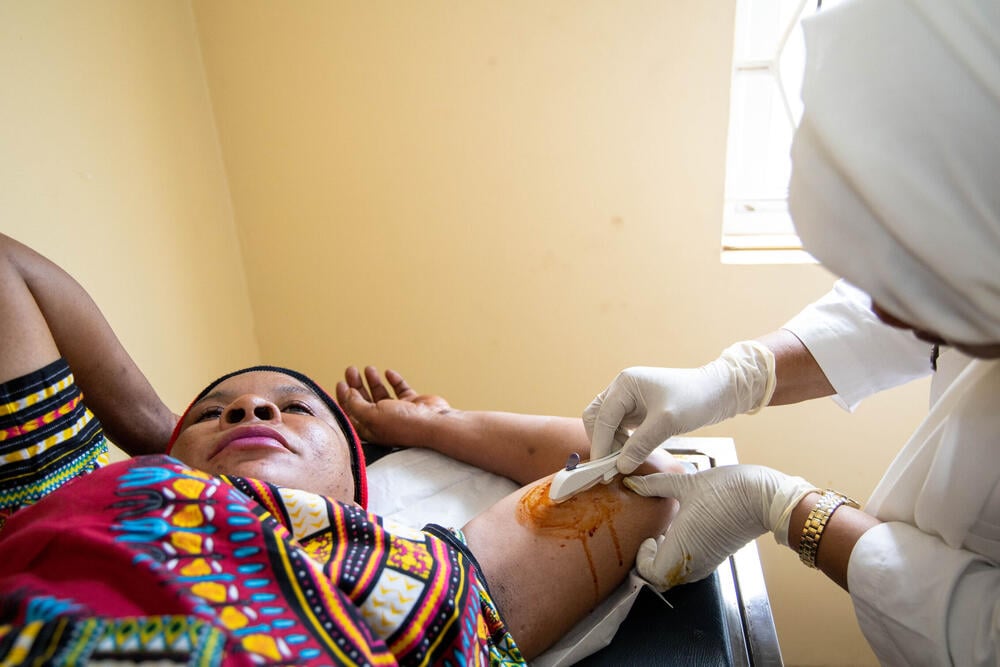
Access to contraceptive information is central to achieving gender equality. When women and couples are empowered to plan whether and when to have children, and how many, women are better enabled to complete their education; women’s autonomy within their households is increased; and their earning power is improved. This strengthens their economic security and well-being and that of their families.
Cumulatively, these benefits contribute to poverty reduction and global development. These benefits were recognized in the Programme of Action of the International Conference on Population and Development (ICPD), which called for “the right of men and women to be informed and to have access to safe, effective, affordable and acceptable methods of family planning of their choice.” This agreement lays the foundation for much of UNFPA’s work
Community Voices: A Story of Change
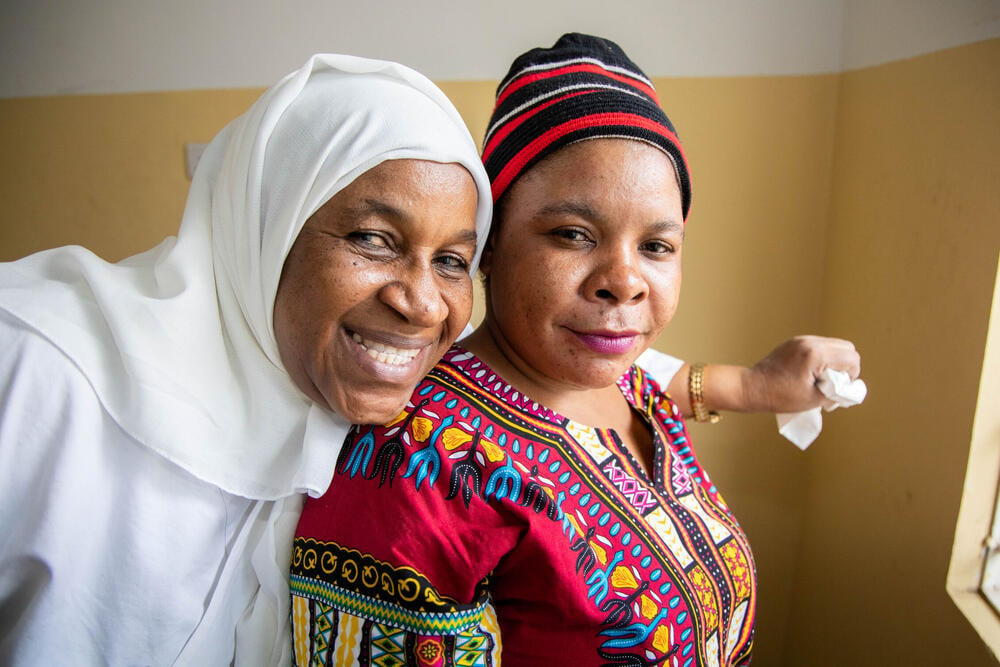
Meet Mwanaisha Rajabu, a 28-year-old mother of three living in Fuoni - Unguja in Zanzibar. Like many women in her community, Mwanaisha faced barriers to accessing family planning services.
“I always wanted to have a smaller family,...but I didn’t know how to access the right information and services.”
Through UNFPA’s community outreach initiatives, Mwanaisha attended a health education session in Unguja, Zanzibar that opened her eyes to the options available for family planning.
Trained community health workers provided information about various contraceptive methods and the importance of child spacing. Mwanaisha learned that having children too close together can pose significant health risks to both mothers and babies.
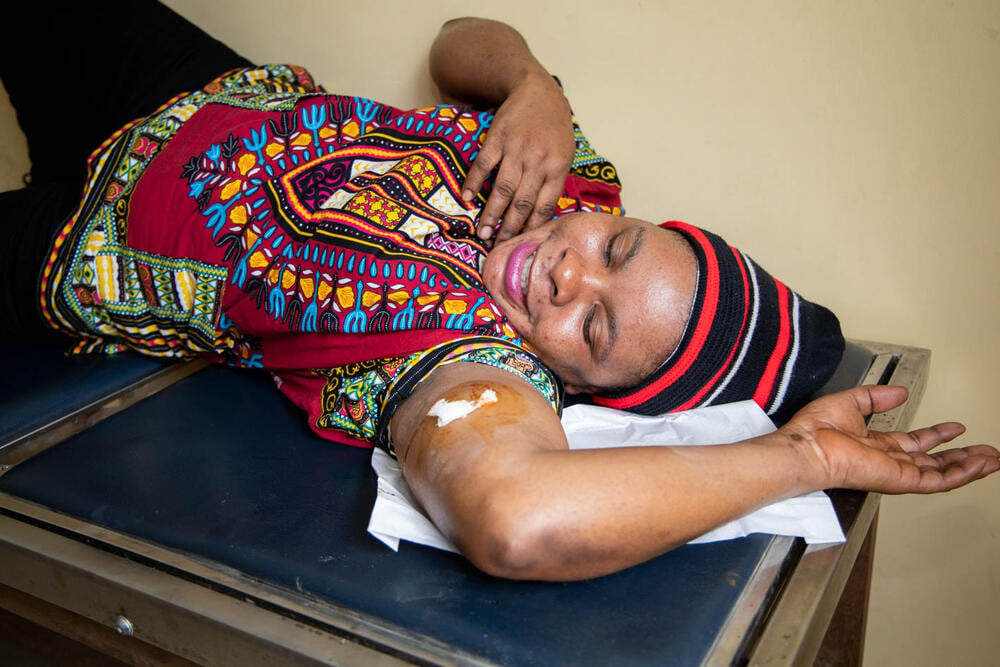
“Family planning has given me the power to choose how many children I want and when to have them. Now, I can focus on giving my children a better life.” Said Mwanaisha Rajabu
Mwanaisha’s Journey
Empowered with knowledge, Mwanaisha decided to take control of her reproductive health. With the support of a community health worker, she chose a method of family planning that suited her needs.
“Now, I can plan for my future and give my children the best life possible,”
She explains, a smile illuminating her face. Her story is not an isolated case. Across the United Republic of Tanzania, more women are accessing family planning services, thanks to UNFPA’s commitment to achieving zero unmet need for family planning.
Community Impact and Future Aspirations
The ripple effects of these initiatives are profound. Families are experiencing improved health outcomes, and women like Mwanaisha are taking on leadership roles in their communities, advocating for the importance of family planning and child spacing.
“Access to family planning has changed our Shehia. Families are healthier, and women are more confident in making choices about their futures.” Said Juma Abdallah, Unguja, Zanzibar, Tanzania.
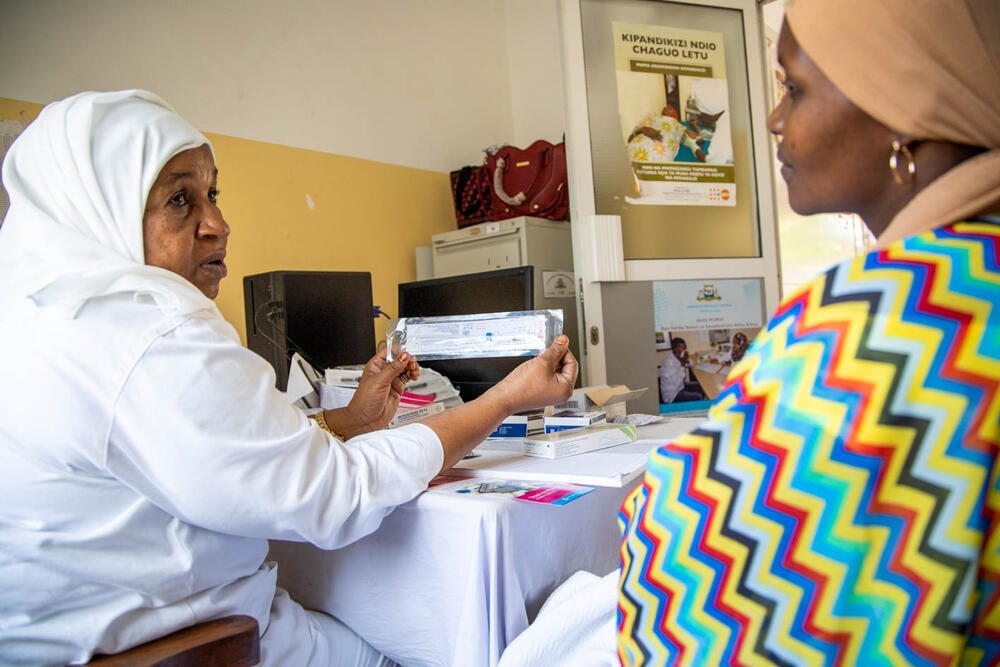
The Context
Tanzania continues to grapple with a high total fertility rate (TFR) of 4.8%, which contributes to various health and socio-economic challenges. Many families have more children than desired, increasing the risks to maternal and child health while placing economic pressure on households. The limited use of modern family planning methods remains a contributing factor to this high fertility rate, highlighting the need for improved access and education.
According to the 2022 Tanzania Demographic and Health Survey (TDHS), 31% of married women and 36% of sexually active unmarried women aged 15-49 are using modern family planning methods, suggesting moderate uptake, but with a substantial unmet need. In addition, only 1% of women in the same age group used emergency contraception in the past 12 months, signalling limited awareness or availability of this option.
Public health facilities are pivotal in providing family planning services. Notably, 76% of injectable users and 84% of IUD users obtain their contraceptive methods from public sources, indicating that government health facilities play a major role in supplying these long-term methods. However, the reliance on public sources varies by method, with 19% of male condom users and 65% of pill users obtaining their supplies through public channels. This suggests gaps in accessibility or preference for public versus private sources for certain contraceptives.
Despite these challenges, Tanzania has made progress in meeting the demand for family planning. Among married women, 53% have their need for family planning satisfied with modern methods, while 48% of sexually active unmarried women have their needs met, highlighting room for improvement in coverage.
Encouragingly, 85% of women aged 15-49 participate in decisions about family planning, which reflects significant autonomy in reproductive health decision-making. This empowerment is critical for fostering sustainable family planning behaviors and improving health outcomes. However, efforts to expand access and further integrate family planning into broader health services are necessary to reduce the fertility rate and address the associated health and socio-economic challenges in the country.
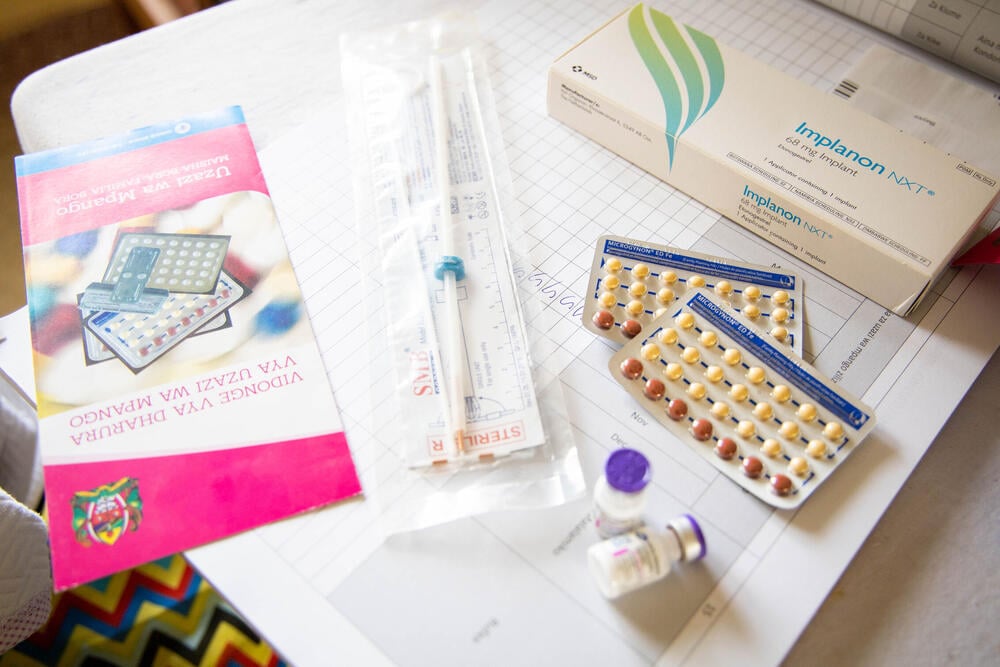
The Role of UNFPA
UNFPA Tanzania’s initiatives are grounded in the belief that informed choices lead to empowered families. The organization has partnered with the Ministry of Health (Reproductive health programme, Central medical stores, and Chief pharmacist office) to ensure the availability of a range of contraceptive methods, from pills to long-acting reversible contraceptives.
In addition, UNFPA conducts field monitoring and last-mile assurance activities to safeguard and guarantee the availability of RH/FP commodities in efforts to reach those who are in need.
Furthermore, UNFPA supports training programs for healthcare providers, enabling them to offer comprehensive and non-judgmental family planning counseling. This effort is crucial in reducing the stigma and misconceptions surrounding contraceptive use.
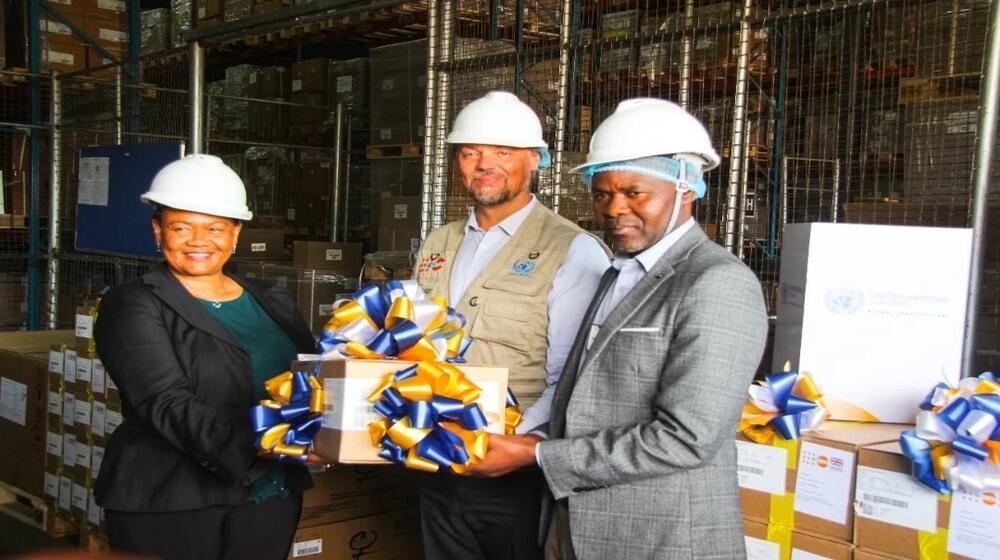
Apart from working with the Government, UNFPA also works with , NGOs, community-service organizations, faith-based organizations, youth groups and the private sector to strengthen community-based and youth-friendly reproductive health services, and to provide these services during humanitarian crises.
UNFPA’s ongoing support aims to further strengthen these community networks, ensuring that all individuals have access to the information and services they need. With a focus on sustainable development, the initiative contributes to broader goals of gender equality, economic empowerment, and improved health outcomes.
UNFPA and UKAID Collaboration;
From 2015 to 2023, UNFPA, in collaboration with UKAID, procured 68.3M worth of maternal health life-saving commodities (53% of contraceptives and 62% of other maternal health medicines).
The impact of contraceptives procured by UNFPA in this period provided an estimated 22,163,325 CYP, prevented 10,606,806 unintended pregnancies, 959,640 maternal deaths, and 2,971,000 unsafe abortions. The direct healthcare costs saved 774,516,589 USD.
The capacity of 3582 Health Care Workers (HCWs) was built in supply chain management, including IMPACT teams who are scaled up in five regions (Dar es Salaam, Dodoma,
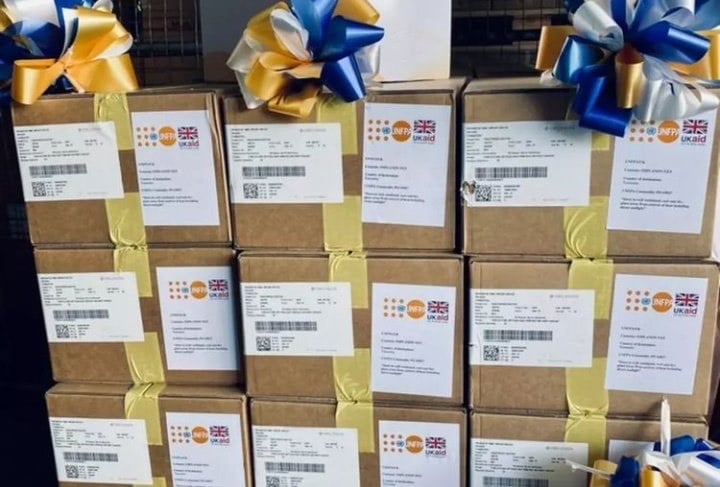
Kigoma, Shinyanga, and Simiyu) for increased data visibility and stock availability at last-mile delivery. UNFPA also supported the government in establishing the electronic Logistics Information Management System in 2014 and, in addition, supports the annual last-mile assurance country inventory assessment for supply chain visibility.
UNFPA, in collaboration with UKAID, supports the government in coordinating FP interventions through technical meetings, including the quarterly National Reproductive Health Commodity Security Committee meetings and quantification of Reproductive Health commodities.

The journey toward achieving zero unmet need for family planning in the United Republic of Tanzania is ongoing, but the commitment of UNFPA and the voices of empowered individuals like Mwanaisha pave the way for a brighter future. As more women gain access to family planning services and education, the impact is felt far beyond individual families, transforming communities and fostering a healthier, more equitable society.
Family planning is the information, means, and methods that allow individuals to decide if and when to have children. This includes a wide range of contraceptives – including pills, injectables, implants, intrauterine devices, surgical procedures that limit fertility, and barrier methods such as condoms – as well as non-invasive methods such as the calendar method and abstinence. Family planning also includes information about how to become pregnant when it is desirable, as well as treatment for infertility
UNFPA in collaboration with UKAID and other partners continues to support many aspects of voluntary family planning, including procuring contraceptives, training health professionals to accurately and sensitively counsel individuals about their family planning options, supporting comprehensive post-care to save the lives of women and girls and including promoting comprehensive sexuality education in and out of schools. girls.
Media Inquiries:
Dr. Warren Bright
UNFPA Communications Analyst
United Republic of Tanzania
Mobile: +255 764 43 44 45
Email: bwarren@unfpa.org

